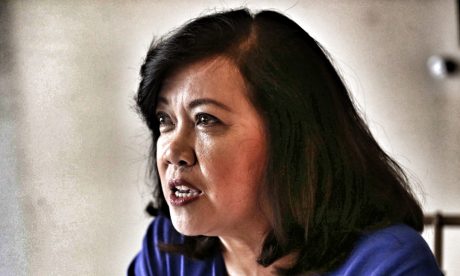
Filipinos like to talk big around the lofty word “integrity”, but do they really know what it means to be a person of integrity? Apparently not — because to be a true person of integrity involves consistency from the ground up. Take this circus surrounding the plight of Supreme Court “chief justice” Lourdes Sereno. One of the violations being raised as basis for a bid to remove Sereno from office is her record of repeatedly not complying with a requirement that all government officials submit a Statement of Assets Liabilities and Net Worth (SALN) every year. But, according to Sereno, the “SALN is not a measure of integrity”. This she was said to have stated in an on-going hearing on the quo warranto petition against her.
It’s a bit rich seeing someone trying to dismiss the principle underpinning a violation she is being cited for. It’s like appealing a speeding ticket by arguing that driving a car fast is not necessarily dangerous. That’s just skirting the fact of the law which is what lends legitimacy to a speeding ticket. Sereno should know better. Her arguments with her colleagues in the Supreme Court should be framed by the scope of the petition and its underlying principles.
This is the reason the virtue of integrity has, for so long, eluded Filipinos as a people. To achieve the highest forms of integrity one, first, needs to prove an ability to get the small basics right.
We don’t need to look too far for examples to illustrate this concept that are easier to grasp. Traffic rules are, perhaps, a good case study to demonstrate the profound nature of Filipinos’ lack of true integrity. Analysts of the infernal traffic situation in Metro Manila try to solve the big problems, with big supposedly system-wide “solutions” like colour coding schemes, bus lanes, and, get this, more traffic rules enforcement. The trouble is, nobody enforces the small seemingly-inconsequential rules like stopping your car to allow pedestrians to cross a pedestrian lane or actually turning left when you are on a lane marked by an arrow pointing to the left. Filipino drivers who observe these small rules are often regarded with ridicule and dismissed as weirdos.
Or look back to 2016 when Liberal Party candidate Leni Robredo was declared the “winner” of the vice presidential race despite failing to comply with a Commission on Election (COMELEC) rule that required candidates’ campaign statement of contributions and expenditures (SOCE) to be submitted by a specified deadline. The COMELEC guidelines at the time explicitly stated that this deadline is “final and non-extendible” and that “submissions beyond this period shall not be accepted.” Nonetheless, many people regard Robredo as the Philippines’ “vice president” today thanks to a vote by COMELEC commissioners to overrule their own rules!
There are layers upon layers of precedents that make up the foundation of dysfunction that prevents Philippine society from advancing to a truly modern nation governed consistently by laws that apply to all. The lack of any appreciation of how an inability to sort out the small things always ultimately leads to an ingrained inability to sort out the big things.
In the statements of no less than the “chief justice” of the Philippine Supreme Court making light of basic administrative violations, Sereno comes across as only the most recent high-profile role model of crookedness that Filipinos have come to get used to looking up to on a regular basis. Integrity is not a part-time virtue. People of true integrity should exhibit from top to bottom and apply it in all aspects of one’s life both big and small whether seen by others or not.
This is the reason Sereno must vacate her office — because she has exposed herself to be unfit to be a true Chief Justice of the Republic of the Philippines. For that distinction, one must be a true person of integrity to give honour to the office of Chief Justice and restore people’s trust in the Supreme Court.

No comments:
Post a Comment